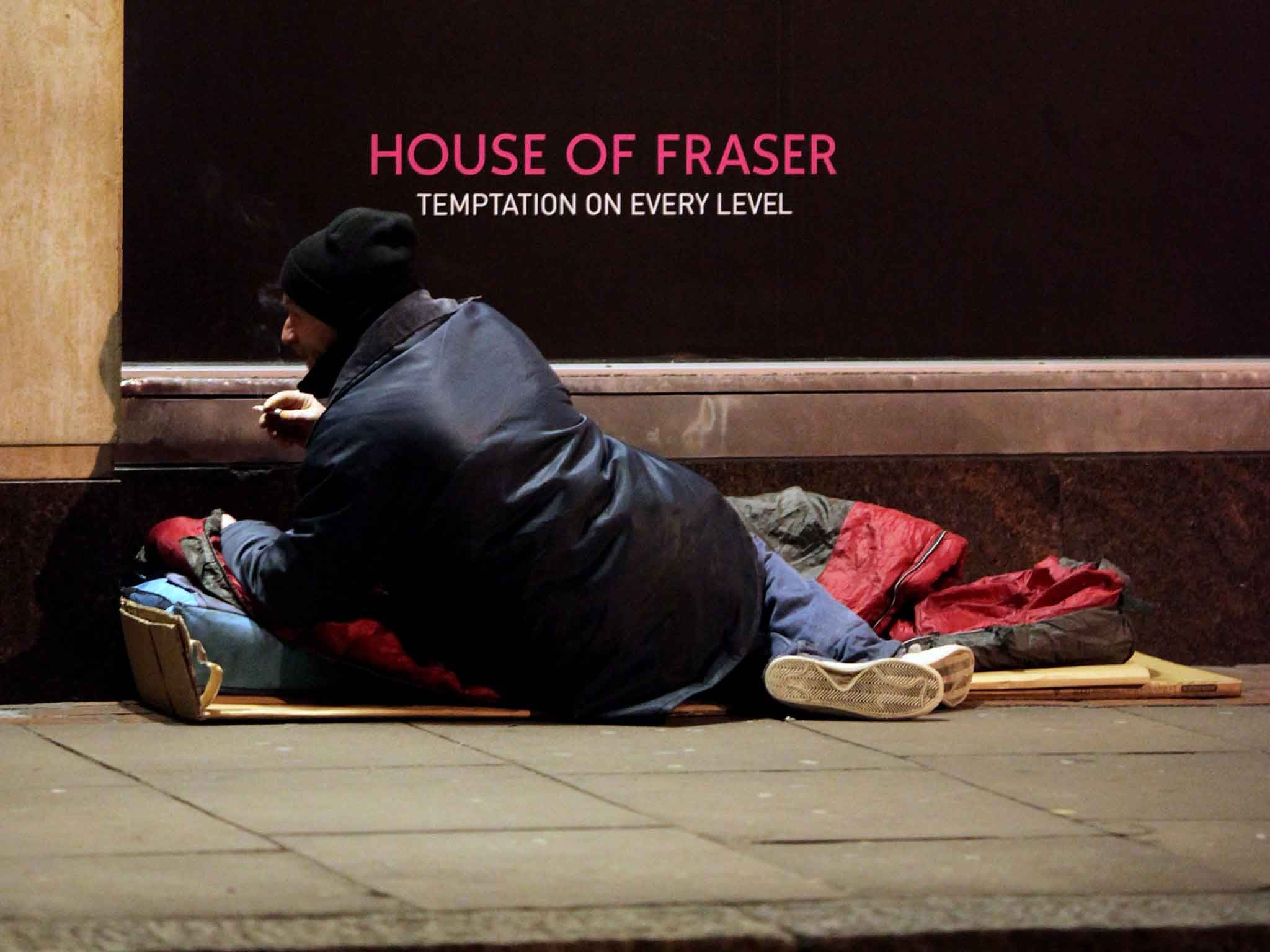‘To combat homelessness, we need to count the hidden homeless too'
Many of the ‘hidden homeless’ are not appearing in Government statistics says Centrepoint’s Gaia Marcus

Your support helps us to tell the story
From reproductive rights to climate change to Big Tech, The Independent is on the ground when the story is developing. Whether it's investigating the financials of Elon Musk's pro-Trump PAC or producing our latest documentary, 'The A Word', which shines a light on the American women fighting for reproductive rights, we know how important it is to parse out the facts from the messaging.
At such a critical moment in US history, we need reporters on the ground. Your donation allows us to keep sending journalists to speak to both sides of the story.
The Independent is trusted by Americans across the entire political spectrum. And unlike many other quality news outlets, we choose not to lock Americans out of our reporting and analysis with paywalls. We believe quality journalism should be available to everyone, paid for by those who can afford it.
Your support makes all the difference.When it comes into force later this year, the Homelessness Reduction Bill will increase support for certain vulnerable groups who face becoming homeless. But the key to its effectiveness will lie not just in its legal drafting but will depend to a very large extent on whether the Government allocates sufficient financial resources to councils to meet the demand for homelessness services.
But what exactly is ‘sufficient’? And who are the homeless that will be supported?
It all comes down to who is ‘counted’ as being homeless. If a young person is homeless and no-one sees them, are they homeless? If a young person asks for help and no-one listens; were they there? If they seek help but are simply turned away; do they count? This may sound like pub philosophising but this a problem faced by real people.
Take Sarah. Kicked out by her parents, she has stitched together a life from the age of 16 to the age of 19; sofa surfing, favours and a shaky future. Does she count? Or Steve, 21; council staff turned him away as he has no kids, no formal application made. Is he counted? What about Jack, 16 – a child - anger issues. Mum can’t let him come home as he has younger siblings; he’s now rough sleeping in a park. Social services think mum should intervene; she does not feel she can, wouldn’t be safe or fair for her other children. Counted?
In all these circumstances the answer is no. They would not be counted and they will not show up on official statistics. Because current legislation allows you to be simultaneously homeless but not ‘homeless’, every year thousands of young people who have nowhere to go cannot access support.
But the impact goes further than just whether one individual can get the support they need. In an age of ever-smaller public sector budgets, data has become more and more crucial in deciding where and how the Government spends taxpayer’s money.
Last year across the UK, 26,000 young people were seen as being officially ‘homeless’ but according to Freedom of Information returns received from local authorities, an estimated 150,000 asked their local authority for help. At least one third were turned away with no help at all. A figure which could rise even higher if the Government moves forwards with plans from April to restrict the ability of thousands of 18 to 21-year-olds to claim benefits to keep a roof over their heads.
If you are the Chancellor of the Exchequer you might look at the official data and decide the Government only needs to fund support for 26,000 people, and you wouldn’t be entirely wrong. Under the official definition of homelessness, money allocated on this basis should meet demand.
If you are local councils you would look at your official data and decide you need from the Government enough money to meet demand from 150,000 young people, and they wouldn’t be entirely wrong either.
The fact is that nobody actually knows for certain the precise number of young people who need help because they are homeless, something which the cross-party Communities and Local Government select committee of MPs pointed out last year. That is why Centrepoint created the Youth Homelessness Databank to better collect and analyse youth homelessness data.
But it really shouldn’t fall to a charity to have to step in to ensure that the scale of homelessness is properly monitored. If the Government is serious about tackling homelessness it needs to get serious about the way it collects data.
Gaia Marcus is Centrepoint's Youth Homelessness Databank Manager
Join our commenting forum
Join thought-provoking conversations, follow other Independent readers and see their replies
Comments